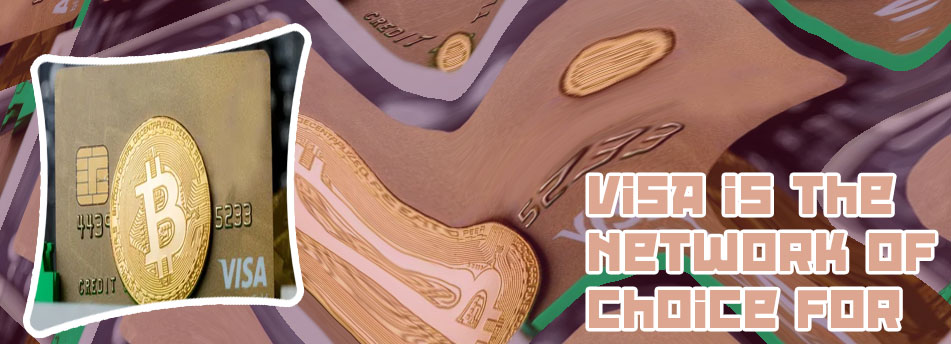
Visa plans to bitcoin payments at
Visa, one of the largest payment processors in the world, has announced plans to integrate Bitcoin into their services, opening up a whole new world of possibilities for cryptocurrency users. In order to understand the implications of this decision, it is important to explore a variety of articles that delve into the details of Visa's plan. Here are four articles that will provide insight into how Visa plans to incorporate Bitcoin into their platform.
Visa Partners with Crypto Startup to Offer Bitcoin Rewards Credit Card

Visa, one of the world's leading payment networks, has recently announced a partnership with a crypto startup to introduce a new credit card that offers Bitcoin rewards. This groundbreaking collaboration marks a significant step towards mainstream adoption of cryptocurrencies in the financial industry.
The partnership between Visa and the crypto startup allows cardholders to earn rewards in the form of Bitcoin for every purchase they make using the credit card. This innovative approach not only incentivizes consumers to use the card more frequently but also provides them with an opportunity to accumulate Bitcoin as a form of investment.
With the growing popularity of cryptocurrencies such as Bitcoin, this new credit card is expected to attract a wide range of users who are looking to diversify their rewards beyond traditional cashback or travel points. By offering Bitcoin rewards, Visa is catering to the increasing demand for digital assets among consumers worldwide.
This partnership also highlights Visa's commitment to embracing new technologies and adapting to the evolving needs of its customers. By collaborating with a crypto startup, Visa is demonstrating its willingness to explore innovative solutions that cater to the growing interest in cryptocurrencies.
Overall, the introduction of a Bitcoin rewards credit card by Visa in partnership with a crypto startup is a significant development that underscores the increasing integration of digital assets into the mainstream financial ecosystem. This partnership has the potential to revolutionize
How Visa's Bitcoin Integration Could Revolutionize Online Payments
Visa's recent announcement about integrating Bitcoin into its payment network has sent shockwaves through the online payments industry. This move could potentially revolutionize the way we make transactions online, offering consumers a more secure and efficient payment option.
Bitcoin, a decentralized digital currency, has been gaining popularity in recent years due to its ability to provide fast and low-cost transactions. By partnering with Visa, Bitcoin will now have access to a vast network of merchants and users, making it easier for people to use the cryptocurrency for everyday purchases.
This integration could also benefit businesses by reducing transaction fees and eliminating the need for third-party payment processors. With Visa's backing, Bitcoin could become a mainstream payment option, further legitimizing the cryptocurrency in the eyes of consumers and investors.
Famous figures in the tech and finance world, such as Elon Musk and Warren Buffet, have expressed interest in Bitcoin and its potential to disrupt traditional payment systems. With Visa's support, Bitcoin may finally have the opportunity to reach its full potential and become a widely accepted form of online payment.
Overall, Visa's decision to integrate Bitcoin into its network could mark a significant turning point in the evolution of online payments. As more companies follow suit and adopt cryptocurrencies, we may see a shift towards a more decentralized and secure financial system in the
Visa's CEO Discusses Strategy for Adopting Bitcoin in Payments Industry
Visa, a global leader in the payments industry, is contemplating the adoption of Bitcoin as a form of payment. The company's CEO recently discussed the strategy behind this potential move, shedding light on the benefits and challenges that come with embracing the world's most popular cryptocurrency.
One key aspect of Visa's strategy is to leverage Bitcoin's growing popularity among consumers and businesses. By accepting Bitcoin payments, Visa aims to cater to a broader customer base and stay ahead of the curve in an ever-evolving industry. Additionally, integrating Bitcoin into its payment network could help Visa tap into new markets and drive revenue growth.
However, there are also challenges that Visa must address before fully adopting Bitcoin. One major concern is the volatility of the cryptocurrency market, which can pose risks for both consumers and businesses. Visa will need to develop robust risk management strategies to mitigate these risks and ensure the stability of its payment network.
In conclusion, Visa's potential adoption of Bitcoin reflects the company's commitment to innovation and staying competitive in the payments industry. By carefully considering the benefits and challenges of embracing Bitcoin, Visa can position itself as a leader in the rapidly changing landscape of digital payments.
Key points to consider:
- Leveraging Bitcoin's popularity to cater to a broader customer base
- Addressing the challenges of
Regulatory Challenges and Opportunities for Visa's Bitcoin Integration
Today we have with us an expert in the field of cryptocurrency regulation to discuss the challenges and opportunities that Visa may face as it integrates Bitcoin into its payment network. Can you please introduce yourself to our audience?
"Hello, my name is Sarah and I have been studying the regulatory landscape of cryptocurrencies for several years now. I am excited to talk about the potential implications of Visa's Bitcoin integration."
What are some of the regulatory challenges that Visa may encounter as it incorporates Bitcoin into its platform?
"Visa will have to navigate a complex web of regulations surrounding cryptocurrencies, including anti-money laundering laws, consumer protection regulations, and tax compliance. Ensuring that they are in compliance with these regulations will be crucial for the success of their Bitcoin integration."
And what opportunities do you see for Visa in this endeavor?
"By integrating Bitcoin into their payment network, Visa has the opportunity to tap into a growing market of cryptocurrency users. This move could also help them stay ahead of competitors who are also looking to incorporate digital assets into their platforms."
In conclusion, it is crucial for Visa to carefully consider the regulatory challenges and opportunities that come with integrating Bitcoin into their payment network. By doing so, they can position themselves as leaders in the cryptocurrency space and potentially attract a new segment of customers who are interested in
|
|
